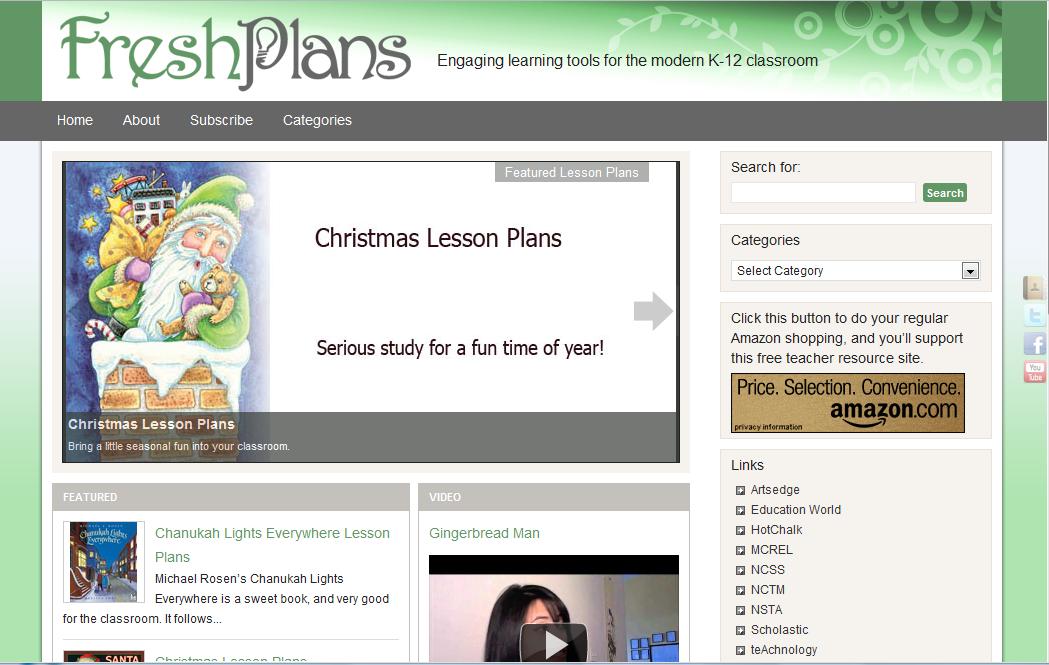Your cart is currently empty!

Lab Report: Long Tail Keyword Rankings
Your website has some basic keywords you should always have in mind. The websites I’m working on today have primary keywords including “kids’ music,” “used furniture,” “Fayetteville apartment rentals,” and “homebuilders.” We always want to include these terms in our writing for these sites, and you should always include your primary keywords when you’re writing for your website.
However, those aren’t the only search terms people use to reach you. Our lab site, FreshPlans, has had visits via 4,485 different keywords this month.
Here are the top ten from yesterday:

This means that a bunch of people typed “gingerbread lesson plans” at Google, were offered our site, and clicked through. Slightly fewer did the same with “How the Grinch Stole Christmas lesson plans.” And so on down the list.
What do we do with this information?
First, it’s good news for us in terms of our primary keyword “lesson plans.” Eight of the top ten search strings people used included these words, so we can feel confident that we’re doing well with this term, even though we know we’re far from top rankings for this highly competitive term. Since we also see multiple visits using the term “lesson ideas,” we should probably start using that phrase as an alternative to “lesson plans” sometimes, too.
Second, it shows that our holiday posts are indexed and working for us. Since our target market — teachers — are only in school for another couple of weeks, we needed to hit the ground running with Christmas-related lesson plans, and it’s good to know that we succeeded. When we checked our rankings for these terms, we were happy to see that we’re on the front page of Google search results for all of them.
We also notice that there are some Christmas-related terms for which we’re not being successful. We are on the front page at Google for some other seasonal searches (“Chanukah lesson plans,” for example, which is often paired with Christmas in U.S. classrooms, and “The Peterkins Christmas lesson plans,”) but not as many people are searching for these terms. There are also terms people are searching for, such as “Christmas lesson plans,” for which we’re not yet strong enough to rank well at Google.
How can we check our rankings? I used to use rank-checking software, but Google frowns on this and will even ban you from using their services if they find you using it, so I no longer do that. However, checking just by using Google to search as you normally use it won’t give you accurate results. Google uses lots of factors to personalize search. The only way to get accurate information about rankings is to use Webmaster Tools.
However, if you’re really determined to try, use these tips to improve your chances:
- Use a different browser from the one you normally use. I almost never use Internet Explorer for normal purposes, so I use it to check rankings with.
- Better yet, use a different computer. In this case, I used a public computer on the campus where I teach — a machine I had never used before. I also used IE.
- Make sure you’re not signed in. Don’t sign in with the search engine you’re using, with LastPass, or any other service that might have saved settings for you.
- For speed, use advanced settings. Both Yahoo and Google will let you set preferences so that you can see 100 results at once. Then you can just use “find” to check for your website. This gives you your rankings more quickly than paging through.
Another thing we discovered is that we have people reaching us looking for things we haven’t done yet. For example, we have people coming to us by searching for “reindeer lesson plans,” but we haven’t posted any yet. Guess what today’s post will be?
There’s more general information, too, which should be useful to us in planning what topics to cover. For example, we see that people begin searching for Christmas lesson plans immediately after Thanksgiving, but don’t continue looking for Thanksgiving lesson plans (they’re not, for example, seeking out ideas for next year before they put away their Thanksgiving books). We see that people still search for fairy tale lesson plans during the holidays. And we see, from the fact that there were 212 different keywords from the Sunday after Thanksgiving, that our audience has a lot of different things in mind, from SketchUp to science centers, as well as the most popular terms.
Dig into your website’s keyword results and see what lessons are there for you to learn.
by
Tags:

Leave a Reply